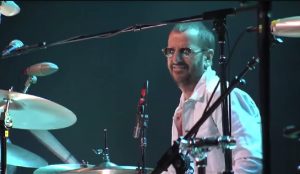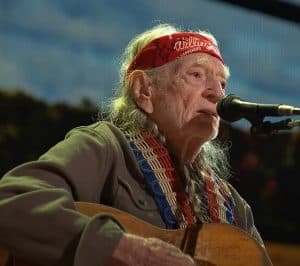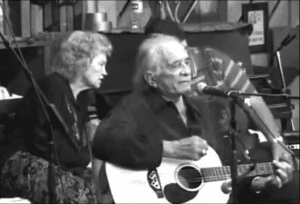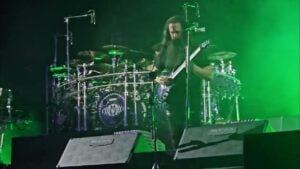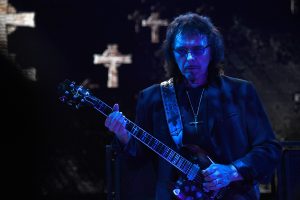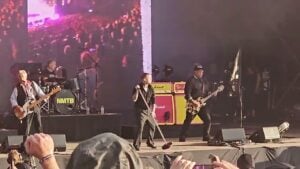We’re Transported In Time In John Lennon’s The Old Grey Whistle Test Interview
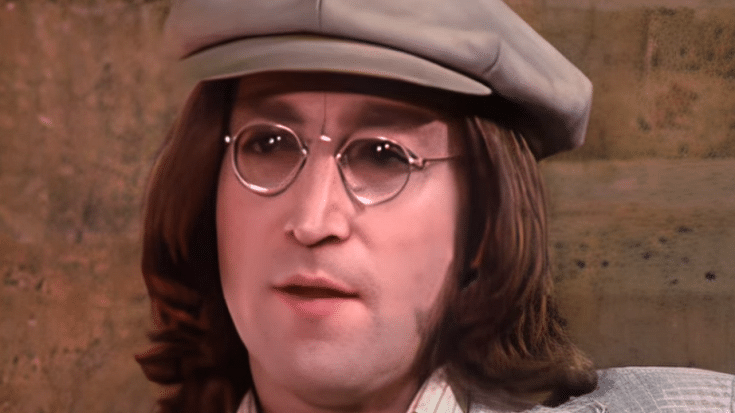
via Jules / Youtube
Beatlemaniacs and casual classic rock fans will surely find themselves back in time with a candid John Lennon casually talking to Bob Harris in his legendary 1975 Old Grey Whistle Test interview.
The friendly chatter gave fans some of the answers to the questions they were itching to ask at that time and a glimpse into the healthy mental well-being of the great singer-songwriter.
In 1975, John Lennon had already risen above everyone else in music to become the definitive face of the decade. The Beatle had just released an obligatory hodgepodge of cover songs, Rock ‘n’ Roll, to critical acclaim. He also had just come off his mythical “Lost Weekend” away from Yoko Ono.
Lennon was obviously in his element, answering Bob Harris’ questions, including the “inevitable question” about a possible reunion, the visa challenges hounding him, making up with Paul McCartney, and his solo albums.
An interview for the ages
The usually outspoken and sharp-witted Lennon became the subject of BBC’s music show, The Old Grey Whistle Test, where Harris found himself in New York for a special interview with the former Beatle, a moment that had the entire UK eagerly listening to every word Lennon uttered.
Ever the excellent interviewer, Harris coaxed candid, open, and reflective responses from Lennon. Their encounter was both fascinating and respectful, culminating in a stunning performance of “Stand By Me”, Lennon’s cover of the Ben E. King classic off his solo record Rock ‘n’ Roll.
The interview saw Harris and Lennon diving into various aspects of the latter’s life, including his experiences in the United States, his visa challenges, the evolving music landscape, collaborations with artists like David Bowie and Elton John, the restoration of his friendship with Paul McCartney, his collaboration with George Martin, and his latest albums, Rock ‘n’ Roll and Walls and Bridges.
What makes this interview particularly special is that Harris allows Lennon to express himself freely, without interruption. Lennon speaks with the freedom to articulate his thoughts, a striking difference from his usual televised interviews.
Furthermore, Lennon’s performance of ‘Stand By Me’ is truly spectacular, as he pours his heart into the cover of Ben E. King’s song, making it his own.
“The inevitable question”
A particularly memorable moment occurred when Harris broached what he called “the inevitable question”. Whispering Bob didn’t need to finish his sentence, as a slightly amused Lennon completed it for him: “Are they ever going to get back together?”
The presenter recovered and found a different angle of attack with “First, is there any possibility, and second, and more importantly, do you think it’s a good idea?”.
Lennon felt chatty, and, instead of offering a succinct answer, pondered: “That’s another point altogether whether it would be a good idea or not. You see it’s strange because at one period when they were asking me I’d say ‘No, never, go back not me’ and then I came to a period where I thought why not if we felt like making a record or doing something. Everybody always envisaged a stage show but to me, if we were together, it would be in the studio again. The stage show is something else but if we’ve got something to say in the studio, then okay.”
— John Lennon (@johnlennon) September 23, 2023
The Beatle was clearly open to a possible reunion, if not for his tragic passing five years later at the hands of a disgruntled fan.
John continued and lamented that, unfortunately, “it’s never got to the position where each one of us has wanted to do it at the same time”.
Though, Lennon still brought up the fact that he worked on some projects with George Harrison and Ringo Starr, and felt that he and Paul were pretty close at the time of the interview. So an official collaboration could have been possible, especially with their fabled jam session in Los Angeles in the middle of his ‘Lost Weekend’ (which later the 1992 bootleg album A Toot and a Snore in ’74).
“Would it be worth it?”
Lennon then addressed the second part of the question with equal detail, saying, “The other question is would it be worth it? That’s answered by if we wanted to do it then it would be worth it.”
He added that it would be worth it to be back in the studio again with the Fab Four, inspiring each other once more, critics be damned. Though he said, “It’s pie in the sky”.
Lennon would love to go along if someone wanted to put things together but clarified that he wouldn’t be the one to pull things together. He said, “If someone wants to pull it together I’ll go along but I’m not in the mood to pull it together that’s for sure. I think we’ve all got too much to do ourselves if they were all in town I’d say come on down and I’d put them on my record right then it would be a Beatles record.”
John also brought up his jam session with Paul, but “there were 50 other people playing and they were all just watching” the old Beatle partners.
The things John regretted
The interview then turned to Lennon’s relationship with his former bandmate Paul, which, at the time, had gone through a turbulent period. Harris directly asked Lennon if he regretted writing and releasing the infamous “How Do You Sleep?”, which has scathing remarks against his songwriting partner.
A thoughtful Lennon expressed: “There were two things I regretted, that there was so much talk about Paul so they missed the song that was a good track and I should have kept my mouth shut but not on the song as that could have been about anybody. Y’know when you look back and Dylan said it about his stuff, that most of it is about him. It’s not about Paul, it’s about me and I’m really attacking myself..”
Still, Lennon said that he lived through it, and the only thing that should matter is how he and Paul felt about what happened between them. “Because him and me are okay, so I don’t care about what they say about all that.,” he added.
You can check the full interview below:







